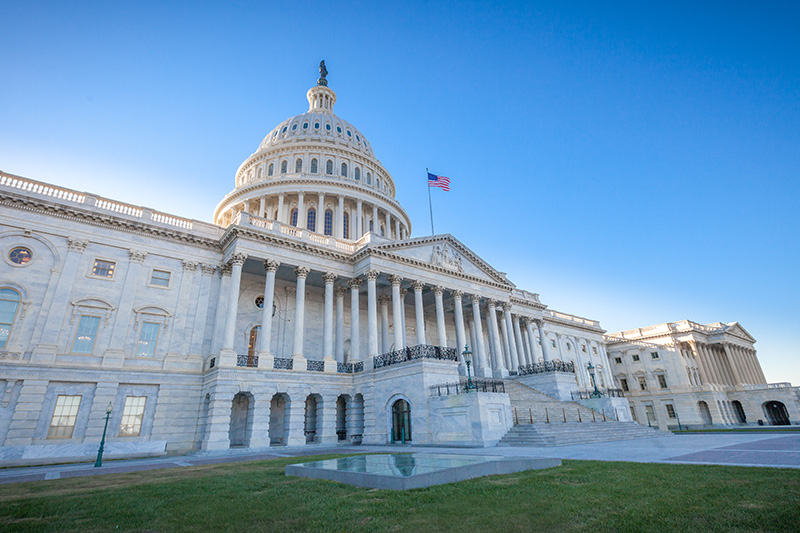TikTok ban: how can marketers adapt?
A bill has been passed by the US House of Representatives that could ban the video-sharing app TikTok in the U.S. This isn’t the first time the future of the Chinese-owned social network has been threaten by governmental policy – however, a ban seems now more plausible than it did during the Trump presidency.
The proposed bill, which requires ByteDance Ltd., the parent company of TikTok, to give up its stake in the platform to continue operations in the U.S., is now moving to the Senate. Indications suggest that the legislation might face more challenges in the Senate compared to the House – regardless, digital marketers need to brace themselves for a potential life without TikTok.

Raising government concerns
Despite the incredible success, the Chinese social media platform is encountering several major hurdles. With accusations that the app unlawfully harvests users’ data, TikTok has been deemed a potential threat to national security.
Governments are also worried that China could use TikTok’s content recommendations for misinformation – a concern that has escalated in the United States during the Israel-Hamas war. This also has the potential to shape the result of the 2024 U.S. presidential election.
Although the ban is currently only being discussed in the U.S.A., the U.K. government is coming under considerable pressure at home and abroad to toughen its approach to TikTok. Britain has traditionally remained close to the U.S. on matters of national security, and it was one of Washington’s keenest allies in clamping down on using Chinese company Huawei’s tech in telecoms infrastructure. If the U.S. decides to ban the social media giant, then it’s likely the United Kingdom will follow suite.
Prepare for changes in engagement
Marketing professionals need to anticipate shifts in how younger demographics interact with content. If TikTok faces a ban, it could drastically alter digital consumption patterns. This necessitates a shift towards alternative platforms where these audiences are likely to migrate.

Reconfigure influencer collaborations
The potential departure of TikTok may diminish the significance and reach of influencers predominantly active on the platform. Marketers should reconsider their influencer approach, seeking collaborations across a wider array of platforms to maintain influence and engagement.
Diversify digital channels
If TikTok disappeared from phones, this would benefit Meta. The Facebook owner launched its own hugely popular short-form video offering, Reels, for both Instagram and Facebook in response to the success of TikTok. With this in mind, marketers should maintain a strong presence on Meta’s applications to counteract the repercussions of a potential TikTok ban. By diversifying their content delivery strategies, by using emerging platforms and well-established ones like YouTube, Instagram and Snapchat – marketers can mitigate future disruptions specific to any single platform.
Cordis
Marketers shouldn’t be deterred by the potential dissolution of TikTok – the audience will remain, instead they will find an alternative digital platform to communicate. While we might not be able to exactly predict what the future holds, we do know that the uncertainty surrounding TikTok gives competing services the opportunity to step up.
If you’re struggling to keep up with the ever-evolving digital infosphere – Cordis can help you. Combining our talents in social media, copywriting, graphic design, website construction, events and videography; we can help reshape your business for 2024!